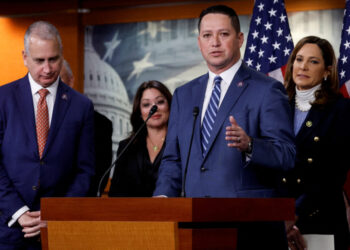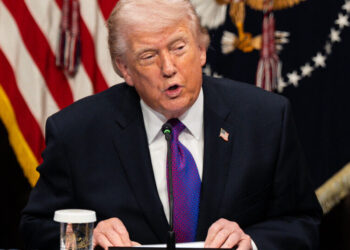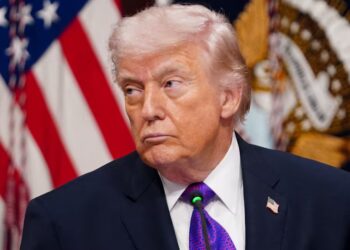‘CBS Mornings’ Exec Bails as Boss Seeks MAGA Host
A top CBS Mornings producer is leaving the program—a development that comes as CBS News boss Bari Weiss is reportedly...
Our Student Podcast Contest
Do you listen to podcasts? Do you tune in to find out what’s happening in the world? To stay up-to-date...
Netflix buys Ben Affleck’s AI film tech company, InterPositive
In 2022, Ben Affleck became so fixated on AI in film production that he quietly launched his own film tech...
Senate Democrats Block D.H.S. Funding Again Over Enforcement Guardrails
Senate Democrats on Thursday blocked for a third time a spending bill to reopen the Department of Homeland Security, insisting...
House GOP leaders call on Rep. Gonzales to end reelection campaign
Republican House leaders called on embattled Rep. Tony Gonzales (R-Texas) to drop his reelection bid Thursday, following his acknowledgment that...
Internet erupts as Trump ousts Kristi Noem: ‘Don’t let the door hit you’
News that President Donald Trump had fired Homeland Security Secretary Kristi Noem from her job and demoted her to “Special...
Trump Says He Should Have Role in Picking Iran’s Leader
President Trump on Thursday said he should have a role in choosing Iran’s new leader, and that Mojtaba Khamenei, a...
Trump’s ‘Obscene’ Ballroom Project Hit With Brutal Public Feedback
President Donald Trump has little to no public support for his ballroom vanity project. More than 32,000 people submitted digital...
MAGA Mouthpieces Turn on Trump Over Iran War
The rise of Donald Trump helped bring far-right fringe voices into the mainstream. Now, some of them are trying to...
Low-rise jeans and exposed midriffs are back. Denim brands are ready to cash in.
Attention, millennials: Low-rise jeans are back in style. Andrea Cremascoli/GC ImagesLow-rise jeans are making comeback as brands like Lucky Brand...














